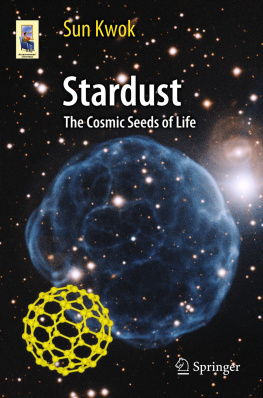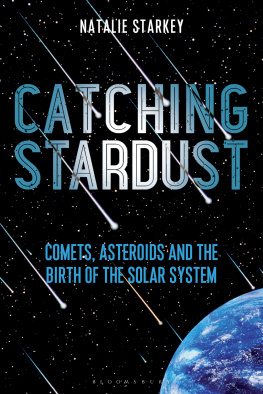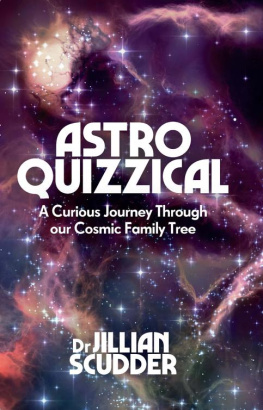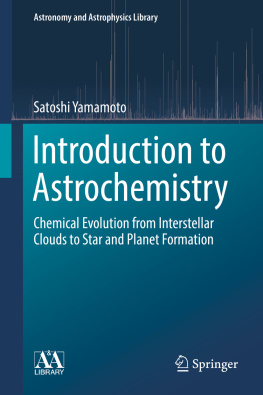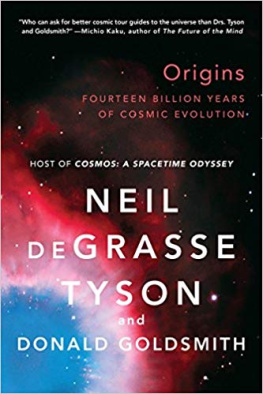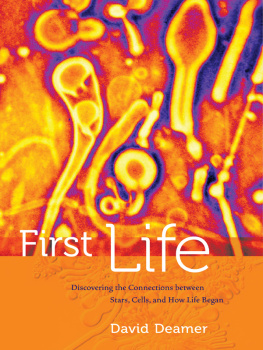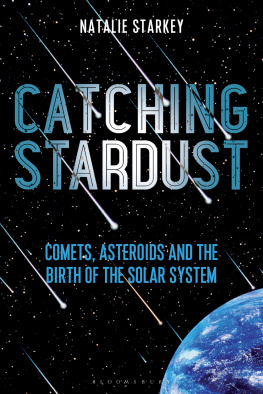Sun Kwok Astronomers' Universe Stardust 2013 The Cosmic Seeds of Life 10.1007/978-3-642-32802-2_1 Springer-Verlag Berlin Heidelberg 2013
1. Where Do We Come From?
How did life originate on Earth? Was it the result of supernatural creation? Or are we the product of deliberate planting by advanced extraterrestrial civilizations? If life is the result of divine intervention, did life appear suddenly with all its functions and capabilities, or had the diverse forms of life on Earth developed over time from certain holy seeds? If extraterrestrials are involved, are we a duplicate of their forms, or were we created as an experiment? If so, did they actually visit Earth or did they deliver their experimental ingredients programmed with specific instructions to this planet by a space probe? Alternatively, maybe we were products of accidental developments, arising naturally without design. If so, what was the initial mix of ingredients? How complicated were the ingredients? How did these ingredients get to the surface of Earth? Were they present when the primordial Earth was formed, or could they have been brought here after the formation of Earth? Could these externally delivered ingredients include primitive life forms such as bacteria?
These are very ambitious questions which until recently would have been regarded as outside the realms of science. However, from the 1970s, we have witnessed the emergence of new scientific disciplines of astrochemistry and astrobiology. These new disciplines have opened new avenues to tackle the old question of the origin of life. Instead of speculation, conjecture, or faith, we can now attempt to answer this question in a scientific manner.
The oldest hypothesis, and also the most common among all cultures, is that life is the result of supernatural intervention. Most primitive cultures believe that they owe their existence to a supreme being. This theory, in its most general form, is impossible to refute by scientific method although specific theories with definite descriptions of sequence of events and the nature of the creation can be subjected to scientific tests.
Our Solar System resides in the Milky Way Galaxy, which has over 100 billion stars, many similar to our own Sun. The Universe as a whole has more than 100 billion galaxies similar to the Milky Way. The age of our Galaxy is estimated to be about 10 billion years old, and the Universe is only slightly older (currently believed to be about 14 billion years). Recent advances in planet detection techniques have revealed over 700 planets around nearby stars. It is quite likely that planetary systems are extremely common around Sun-like stars. If we extrapolate the planet detection rate to distant stars, then the number of planets in our Galaxy could also run into hundreds of billions. Of course, we dont know what fraction of these planets harbors life as the Earth is the only place we know to possess life. But if life forms do exist elsewhere, then many would be inhabiting planets around stars that have been around much longer. Their civilizations would be millions, or even billions of years older than ours. Given the fact that human civilization only started thousands of years ago, and our technological societies only began hundreds of years ago, it is extremely likely that there are many alien civilizations that are much, much more advanced than ours. If this is the case, then the chance is high that some of them would have visited us already.
However, even if extraterrestrial life forms had visited us we may not have recognized them. For example, if our young and relatively backward technological society had the ability to go back several hundred years to leave behind a DVD containing thousands of pictures and videos and music, our ancestors would not be able to see it as more than a piece of shining metal, nor would they be able to decipher its contents. An artifact left behind by an alien advanced civilization is likely far too elusive or mysterious for us to notice or to comprehend. If extraterrestrial intelligent beings had visited the Earth, they would not have left primitive objects such as the pyramids or simple marks on the ground. The absence of evidence for visits by extraterrestrials is therefore no proof of their not having done so. If we were indeed visited, either by advanced life forms or by robots they sent, they could have easily seeded life on Earth without our ever realizing it had happened.
It is clear that some hypotheses on the origin of life, although within the realm of possibility, are difficult or impossible to disprove. As scientists all we can do is to use our present knowledge of astronomy, physics, chemistry, and biology to investigate whether theories of the origin of life stand up to observational and experimental tests.
The hypothesis of spontaneous creation, which states that life arises from nonliving matter, has a long history. The Greeks, for example, promoted the theory that everything is created from primary substances such as earth, water, air, and fire. The idea that plants, worms, and insects can spontaneously emerge from mud and decaying meat was popular up to the seventeenth century. This theory was put to severe tests in the seventeenth century when the Italian physician Francesco Redi (16261698) noticed that maggots in meat come from eggs deposited by flies. When he covered the meat by a cloth, maggots never developed. This experiment therefore cast doubts on the premise that worms originate spontaneously from decaying meat.
The invention of the microscope has revealed the existence of large varieties of microorganisms which are invisible to the naked eye. A Dutchman, Antonie van Leeuwenhoek (16321723), found microorganisms in water and therefore showed that minute life is common. Van Leeuwenhoek was a tradesman who lived in Delft, Holland and had no formal training in science. He did have good skills in grinding lenses and made a large number of magnifying glasses for observations. He had put everything imaginable under his home-made microscope. The list of samples that he had observed include different sources of water, animal and plant tissues, minerals, fossils, tooth plaque, sperm, blood, etc. By using proper lighting during his observations, he was able to see things that no one had seen before. Among his many discoveries, the most notable is the discovery of bacteria, tiny living, moving organisms that are present in a variety of environments. For his achievements, this amateur scientist was elected as a member of the Royal Society in 1680.
Van Leeuwenhoek believed that these life forms originate from seeds or germs that are present everywhere. A revised form of spontaneous creation therefore contends that while large life forms such as animals may have come from eggs, small microscopic creatures can still be created from the non-living. This question was finally settled by Louis Pasteur (18221895) who showed that the emergence of microorganisms is due to contamination by air. His pioneering experiment is the beginning of our modern belief that life only comes from life on Earth today.

